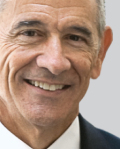We received a question about collective inquiry as it relates to professional learning communities. The writer indicated he was confused and wondered if it simply meant the comparison of test scores of the students of a collaborative team. He asked for clarification and examples. Here is my response:
Collective inquiry is the process in which educators engage as they make significant decisions. Rather than making decisions on the basis of mindless precedent (“This is how we have always done it.”) or personal preference (“This is how I like to do it. “), they begin by building shared knowledge or learning together, thus it is a collective endeavor. Inquiry simply means we are asking and answering questions together. The key to effective inquiry is making sure the question is significant, that resolving it will help us be more effective in achieving our fundamental purpose and goals. In a PLC, collective inquiry will address not one, but many of these questions:
- What is the fundamental purpose of our school?
- What do we know about the characteristics of the most effective schools?
- To what extent are these characteristics evident in our own school?
- What commitments do we need to make to one another in order to create a more effective school?
- What indicators will help us monitor our progress?
- What are the knowledge, skills, and dispositions we want all students to acquire as a result of every course, grade level, and unit of instruction?
- How should we pace our instruction to ensure all students have access to a guaranteed curriculum?
- What evidence will we gather to monitor each student’s learning?
- Do we agree on the criteria we will use in assessing the quality of student work?
- Do we apply the criteria consistently?
- How will we respond as a school when it becomes evident some students are not learning?
- How can we enrich and extend the learning for those who are already proficient?
- Who among us seems most effective in teaching each skill? How can we learn from each other?
- Which of our policies, programs, and practices support learning for all students? Which interfere with student learning?
It is important to understand two things: first, collective inquiry is a process, the way an organization approaches decision making by gathering evidence; second, the effectiveness of the process will depend on the extent to which the collective inquiry is focused on the correct issues.
Posted in:
Tags:

